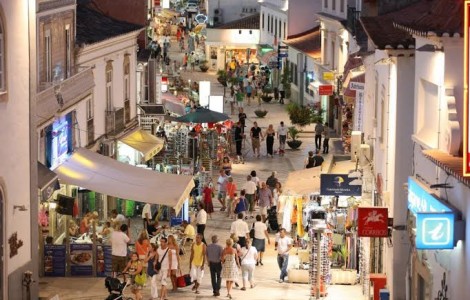 With holidays starting and millions of Europeans planning trips in and out of Europe, here are some tips on what to do when faced with a problem.
With holidays starting and millions of Europeans planning trips in and out of Europe, here are some tips on what to do when faced with a problem.
If you don't know who will cover the costs of your treatment in the event of an accident or you want to know what documents to prepare before taking your dog with you, here is a list of what the European Union is doing to help you on your travels.
I will travel outside Europe, but my country does not have an embassy or consulate in my chosen destination. Who do I contact if I need help?
A citizen of an EU Member State is automatically considered to be an EU citizen and is entitled to consular assistance outside the EU (even if their country is not represented there).
You can contact the embassy or consulate of another EU Member State and ask for help if, for example, you are arrested, involved in a serious accident or lose important documents.
You are also entitled to assistance in crisis situations, as EU Member States must help evacuate all citizens as if they were their own nationals.
You can check if your country is represented at your destination, on the website of the European Commission dedicated to consular protection:
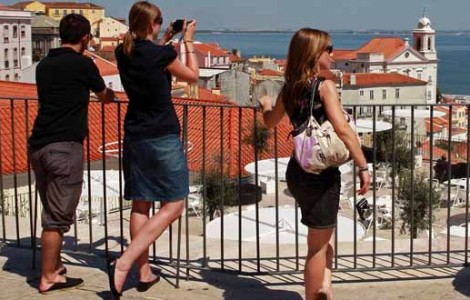 Who should I call if my child goes missing?
Who should I call if my child goes missing?
The European Union has a common emergency line (please tick 116 000) to report the disappearance of a child in an EU Member State.
For the parents of a missing child, a lost child, or anyone with information about a missing child, the number is the same.
You will be immediately put in contact with an organization capable of giving you support and practical assistance, whether psychological, legal or administrative.
Who can I turn to if, while on vacation, I have problems with an airline, car rental company or tour operator?
If my trip by plane, train, bus or boat is delayed or canceled…
thanks to EU rules on passenger rights, if your flight or journey is delayed for several hours, the transport company you are traveling with must compensate you fairly. If the flight or trip is canceled and you have to stay in a hotel far from your final destination, the airline or train operator must pay for the stay.
Before starting your trip, check how you can claim your due at airports, ports, buses and train stations in Europe, or download the smartphone application.
 What specific rights do I have if I am a traveler with a disability?
What specific rights do I have if I am a traveler with a disability?
EU passenger rights rules protect people with disabilities and people with reduced mobility against situations of discrimination when traveling by air or rail transport and guaranteeing them conditions of access to transport equal to those of other citizens.
If you are entitled to use special parking conditions for the disabled when traveling by car in your home country, you benefit from access to the same conditions throughout Europe. You just need the standard model of parking card for people with disabilities.
I bought an organized trip, but the operator went bankrupt. Can I be refunded?
A Package Travel Directive protects European holiday consumers and covers pre-arranged travel packages that combine at least two of the following services: 1) transport, 2) accommodation, 3) other tourist services such as excursions (all included in the overall price).
The directive guarantees protection that covers information in brochures, the right to cancel without penalty, liability for the provision of services (eg hotels of insufficient quality), as well as protection in the event of the insolvency of a tour operator or company aerial.
In the future, this protection will be extended to tourists who book holiday packages online (with a single operator or through several commercially connected operators), under new proposals from the European Commission, with the support of the European Parliament. About 120 million people will thus enjoy additional protection.
 I enjoyed my vacation so much that I'm thinking about getting a time share at the same resort. What should I take into account?
I enjoyed my vacation so much that I'm thinking about getting a time share at the same resort. What should I take into account?
thanks to EU rules, scheme sellers timeshare they must provide customers with detailed information before they are bound by a contract, including the price to be paid, the product description and the exact period of stay to which they are entitled under the contract. This information must be provided in the customer's mother tongue if requested.
The rules also ensure that customers can terminate the contract during a cooling-off period of 14 calendar days and that the seller cannot ask customers for any form of advance payment or deposit during that period.
Prior to the conclusion of the contract, the seller must explicitly inform the customer of the existence of the right of withdrawal, its term and the prohibition to charge any advance payment during this period.
The exorbitant phone bill blew my vacation budget. How can I reduce this expense when I'm traveling?
With the price cut for this summer, the EU is helping you save when you travel. The biggest reduction will be in the roaming of data: from 45 cents per MB to 20 cents per MB (charged per kilobyte used).
In addition, from 1 July 2014, some mobile service providers in Europe will let you opt for a separate contract before your trip. roaming and, when possible, choose a data service provider in roaming in the country you are going to visit.
In this way, you can compare offers from roaming and benefit from more interesting offers and prices while on vacation.
This is all good news for you as you can relax and enjoy the summer, keeping in touch with family and friends who stayed at home.
Even better news is that the EU is currently working on drafting new rules to completely eliminate tax rates. roaming .
So, until next Christmas, we expect rates to roaming be a thing of the past and you can chat, send messages, download and browse anywhere in the EU as you would in your own country!
 What do I have to do to take my pet (dog, cat or ferret) with me on holiday in the EU?
What do I have to do to take my pet (dog, cat or ferret) with me on holiday in the EU?
If traveling within the EU, you can easily take your pet with you as long as you respect the following rules:
If traveling with your dog, cat or ferret, make sure it has been vaccinated against rabies and that this information is recorded in the pet's passport.
If you travel to Ireland, Finland, Malta or the UK, your pet must also undergo antiparasitic treatment.
If your dog or cat is less than 3 months old or your pet is not a dog, cat or ferret, it is possible that specific rules apply in each country.
See our website for more information on this topic.
If you are an EU citizen traveling home with your pet from a non-EU country, too you need your pet's passport. Depending on your holiday destination, in addition to the rabies vaccine, your pet may need to undergo additional testing before leaving on holiday.
If you are resident in Andorra, Iceland, Liechtenstein, Monaco, Norway, San Marino, Switzerland or Vatican City and your pet has a veterinary passport, you have the same rights as EU citizens.
Before departure, inquire about the requirements of the country you are planning to visit.
Can I bring meat or cheese from my trip abroad?
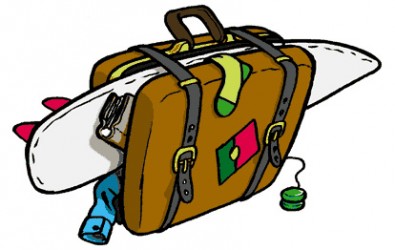 When returning home from most countries outside the EU, it is illegal to bring meat or dairy products, either for personal consumption or as a gift to others.
When returning home from most countries outside the EU, it is illegal to bring meat or dairy products, either for personal consumption or as a gift to others.
If you return from the islands Farois, from Greenland or Iceland, you can bring up to 10 kg of certain animal products, baby milk powder, baby food, special foods or special foods for animals that are necessary for medical reasons.
In order to be able to transport them, these products must be packed in hermetically sealed packages, not weighing more than two kilos or requiring refrigeration before opening.
You can also bring fish and certain seafood from Greenland, as long as they don't weigh more than 20 kilos. Concerning the Islands Farois or to Iceland, no weight restrictions apply.
For other animal products, such as honey, the limit is also two kilos.
When transporting products of animal origin between countries within the EU, these rules do not apply. Nor do they apply if the products come from Andorra, Liechtenstein, Norway, San Marino or Switzerland.
The EU can introduce further restrictions if infectious animal diseases exist in third countries.
In case of doubt, check with the veterinary service at the point of entry into the EU (airport, port, road, etc.).
It is important to remember that these rules are in place to protect your health and the health of the EU livestock sector from serious animal diseases.
For more information see the section Travel of the Europa website!
Consult here the answers to other frequently asked questions.
If you have more questions, click here.
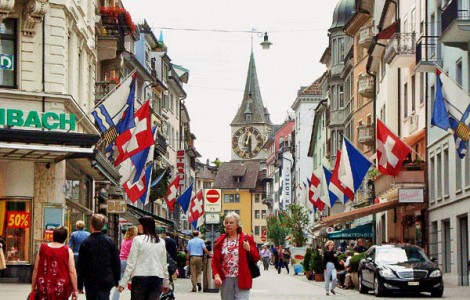 What should you consider if you apply for a loan to pay for a vacation package?
What should you consider if you apply for a loan to pay for a vacation package?
The Consumer Credit Directive gives it some rights when resorting to credit. The five most important rights are as follows:
The information you consult about a consumer credit must be transparent and easy to understand.
Before signing a contract, you must receive enough information to be able to compare the different offers on the market.
Once you sign the agreement, you should receive a copy of it.
If you change your mind, you have 14 days to terminate the contract.
It should be possible for you to repay your credit earlier than expected with fair compensation.
If I have problems shopping while on holiday abroad, who can I contact in my country to help me get repairs?
If you live in the EU, Norway or Iceland, you will be entitled to free assistance when you return! Contact the European Consumer Center (CEC) in your country, if you have had problems renting a car or booking a package holiday or a plane ticket when traveling in the EU, Norway or Iceland.
The team can also help you solve problems you may have had when ordering holiday accessories online from another European country. People who travel to Brazil for the World Cup can also benefit from CEC assistance.
Can download here a special guide to the world cup on your rights as a consumer in Brazil.
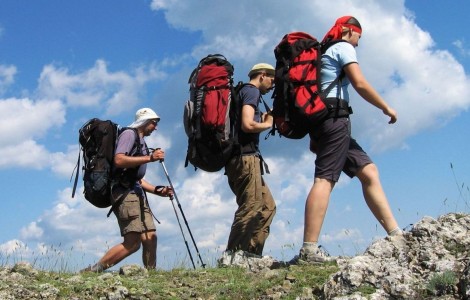 During my vacation I bought new shoes, but they were ruined after a week. How can I get my money back? What are the rules?
During my vacation I bought new shoes, but they were ruined after a week. How can I get my money back? What are the rules?
No matter where you shop in the EU, they assist you fundamental consumer rights that cannot be called into question. 2 year warranty – the seller must repair or replace the defective goods free of charge.
If this is not possible within a reasonable time or without inconvenience, you can ask for a refund or a price reduction. Commercial warranties do not replace the 2-year minimum warranty, but may supplement it.
Regardless of your nationality, EU consumer protection legislation applies to the purchase of goods or services made in any establishment located in the territory of the EU. Warranties are governed by European law.
One of the EU directive sets a minimum level of consumer protection. Member States are obliged to transpose EU requirements into national law, which can also ensure a higher level of protection.
Thanks to European Small Claims Procedure, if you have purchased a defective product abroad, you can request a refund at three simple steps. In many cases and in all EU countries – except Denmark – you can use this process.
It is a quick and cheaper alternative to traditional court procedures and can be used in the case of commercial transactions of up to €2, including those carried out with consumers. Just submit a form standardized to the competent court.
Another good news for consumers is that from 13 June 2014, new EU rules on consumer law will come into force, which will ensure that all EU citizens have 14 days to return, if so they wish, products purchased at a distance, whether via the Internet, by mail or by telephone (MEMO / 14/1144).
What happens if I need to see a doctor abroad?
 If you fall ill or have an accident while traveling to an EU country, Iceland, Liechtenstein, Norway or Switzerland, you are entitled to emergency treatment. For this purpose, you need to have the European Health Insurance Card (CESD).
If you fall ill or have an accident while traveling to an EU country, Iceland, Liechtenstein, Norway or Switzerland, you are entitled to emergency treatment. For this purpose, you need to have the European Health Insurance Card (CESD).
The treatment you will receive will be provided under the same conditions and at the same price as those applied to insured persons in the country you are visiting. To do this, be sure to ask your national health insurance provider to issue the card free of charge.
To take with you the emergency telephone numbers you may need and for more information about covered treatments and their costs, how to claim refunds and who to contact if you lose your card, download the application special for smartphones.
The application is available in 24 languages. The application does not replace CESD.


















Comments